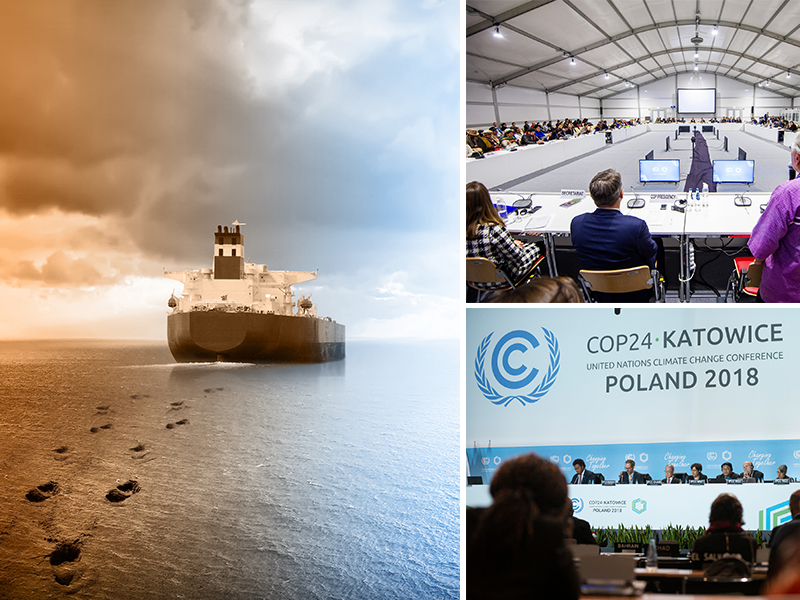IMO is at the UN climate change conference (COP 24) in Poland, highlighting key elements of the Initial IMO Strategy on reduction of GHG emissions from ships. The strategy sets out a vision to reduce the total annual GHG emissions by at least 50% by 2050 compared to 2008, while, at the same time, pursuing efforts towards phasing them out entirely. This sets a pathway of CO2 emissions reduction consistent with the Paris Agreement temperature goals.
IMO reported to the Subsidiary Body for Scientific and Technical Advice (SBSTA 49) on the Organization’s actions and commitment to reduce emissions from international shipping, including the adoption of the Initial IMO Strategy and work on technology cooperation and capacity building.
Discussions at a number of side events at COP 24 have focused on prospects for alternative and low-carbon fuels, as both industry and Governments discuss the need for a shift away from fossil fuels. The IMO initial GHG strategy recognizes that technological innovation and the global introduction of alternative fuels and/or energy sources for international shipping will be integral to achieve the overall ambition. The implications for economic development, including for vulnerable countries, have also been key points for discussion. IMO’s GloMEEP energy efficiency partnerships project and the global maritime technology centre network (GMN) are supporting developing countries to implement IMO energy efficiency measures and to push forward with pilot projects and trials for emissions recording and reporting.
Download IMO presentations and statements here.
